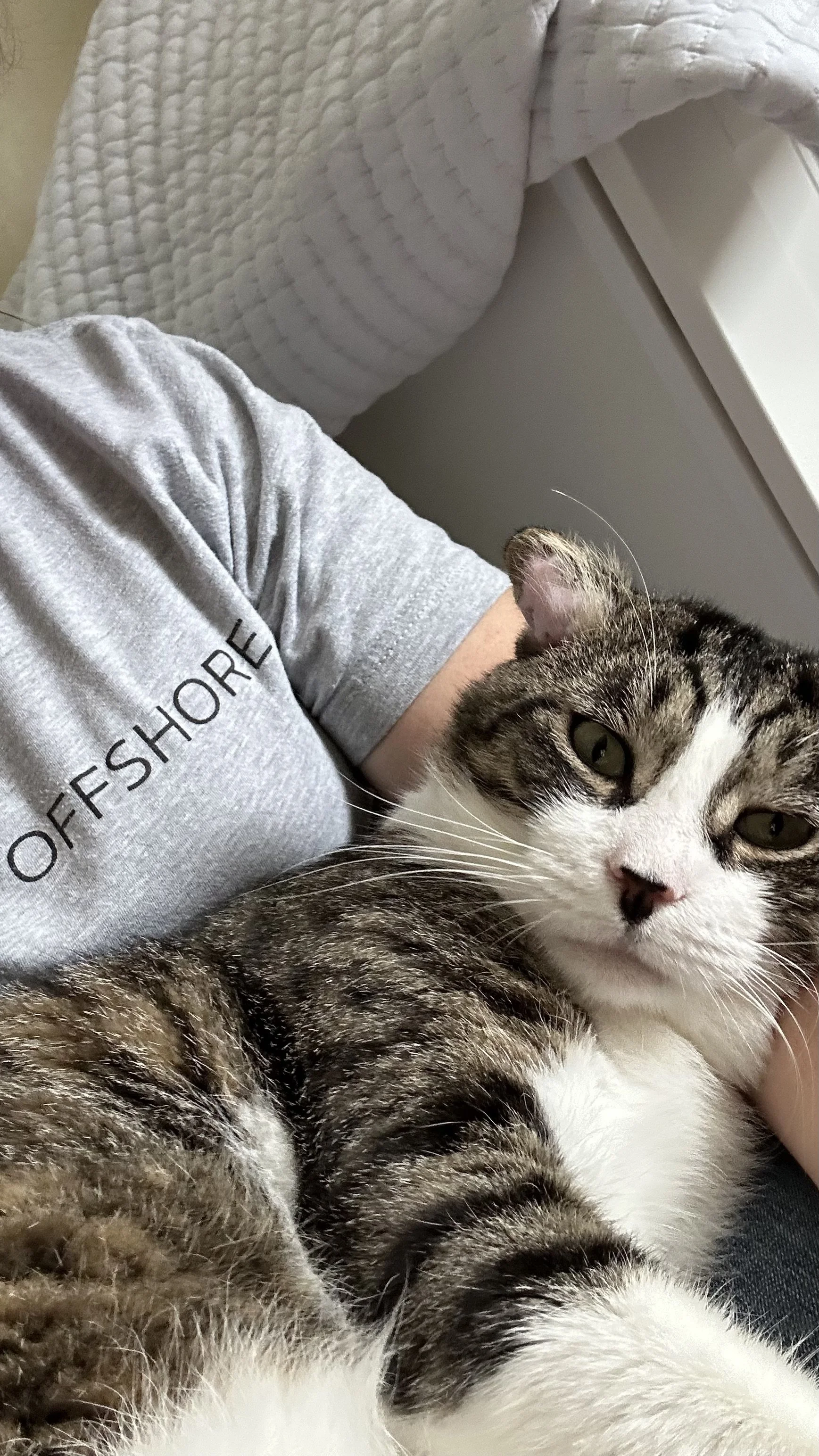We’ve moved our podcast! You can find our episodes right over here.
‘Tis the spooky season, y’all. The “Performance Cycle Season.” Whether this is the “mid-year” check-in point, or the year-end rack-and-stack exercise of deciding who gets a slice of the bonus pie, it’s that time of year when folks are doling out feedback and assigning ratings. The performance cycle is often viewed as a necessary evil: administrative, exhausting, and of low value. Something leaders try to survive rather than leverage.
Resilience is one of those concepts that gets tossed around a lot in leadership circles. Too often, it’s boiled down to toughness, grit, or the ability to “power through.” True resilience, however, is NOT about grinding ourselves into the ground. Instead, it’s about adaptability, responsiveness, and sustainability.
As both a coach and a former engineer, I can’t help but see the parallels between how we talk about resilience in leadership and how it’s defined in material science.
In Part 1, we explored how safety and compassion allowed two foster cats, Ophelia and Mr. Twisty, to reveal who they truly were, and how that mirrors the way humans behave under pressure. In Part 2, we unpacked how confidence is cultivated and how advice like “fake it till you make it” often undermines the very self-assuredness it aims to promote.
Now, in this final part, we turn our focus outward: How do our perceptions shape performance? What power do we hold, as leaders, mentors, colleagues, or community members, to either cultivate confidence or quietly diminish it?
In Part 1, we explored how patience, curiosity, and safety can allow an animal—or a human—to reveal their full self. We saw how behavior under stress isn't a fixed identity, and how presence and belief can transform outcomes.
In this installment, we shift from observation to introspection. What does it actually take to build confidence? And what well-intended advice might be quietly eroding it?
We’re embarking on a journey in this three-part series: from animal fostering to positive psychology, from Greek mythology to quantum physics. You might be wondering what all of these things have to do with confidence, compassion, and the power of perception. I assure you: they’re all connected.
Let’s begin with two stories about real cats. (We’ll get to Schrödinger’s hypothetical feline later.)
"It’s just easier if I do it myself."
This is a common refrain that comes up with my coaching clients, whether I’m working with an overwhelmed parent, a startup founder, or a C-suite leader. Most of us don’t think of ourselves as micromanagers or needing control. We just care and want things done well. In many cases, we’ve been burned before. Perhaps we have a pile of evidence that we can’t or shouldn’t rely on others. How often have we heard the tired cliché (often attributed to Napoléon Bonaparte*): “If you want a thing done well, do it yourself.”
This is a supplemental video of our interactive webinar. Check out Part 1 and Part 2 of our blog series.
In Part 1 of this series, we explored the myriad benefits of a coaching culture and how it creates a ripple effect throughout an organization. In Part 2, we explore the “how” of implementing and embedding a coaching culture within your organization.
In today's climate of financial uncertainty and organizational belt-tightening, employee development is often at risk of being cut. The irony? It's precisely during these challenging times that targeted and strategically implemented coaching delivers its greatest value.
I watched my boss hurriedly hit the mute button. We were onboard a floating production storage and offloading (FPSO), floating in the Atlantic Ocean, and dialed into a large international call with operations leaders from around the world.
“Welp, I messed that one up! Yikes.” He chuckled and shook his head. I stood by his desk, transfixed, watching in awe as he let his faux pas roll right off his back.
When asked what my greatest strength is, I can answer quickly. It’s curiosity. This is also one of the core values I hold dear to my heart. As a child, my curiosity was a double-edged sword. I took apart things that couldn’t be put back together again. I found myself in trees that I couldn’t quite climb down from. I asked far more questions than my Sunday School teachers would have preferred. My bug and rock collection rivaled small museum installations. Perhaps my parents thought it would wear off with childhood, but it turns out that my curiosity was there to stay.
It’s January: The season of goal setting, good intentions and grand resolutions. It’s a fresh start to a new year and an opportunity to re-envision the future we’d like to build for ourselves. January is the month of new gym memberships, new app downloads and new habit trackers.
It makes sense that many businesses run on a calendar year and use this annual cadence to set performance targets. Yet the convention of setting personal goals at the beginning of the year introduces a host of challenges for us humans.
You may be hearing a lot these days about the importance of mentorship programs, particularly as we work to close opportunity gaps and pull-through talent representative of our communities. You may also be hearing a lot about professional coaches and perhaps have even considered working with one. Maybe you’ve been offered one through your workplace. January is National Mentoring Month, and we figured this would be a good time to provide a refresher.
It's the most wonderful time of the year! 🎶 Ehem. You know, the time when we get to have genuine and deeply insightful conversations between managers and direct reports about what went well and where we can grow next year.
Oh. Is that not how the annual performance cycle feels to you?
Well you're not alone. Plenty has been written and researched in terms of the ineffectiveness (and literal harmfulness) of year-end performance conversations. Even the Society of HR Managers gives them a failing grade.
So often, when we speak of resilience, we view it in terms of the individual. In reality, the likelihood of a resilient outcome depends on both individual, internal factors and external factors outside of a person's direct control.
The fourth quarter is in full swing and the end of the year is within sight. This is an excellent time to take stock of where our time and energy are currently being invested as we look ahead to 2024. In Part I, we discussed the importance of setting boundaries around our commitments to ward off burnout and, importantly, to be more present and joyful in the activities that we do take on. I introduced a basic framework:
Less adding,
More subtracting, and
Making the most of what’s retained.
In our ongoing Reclaim the Floor series, we began last week by exploring some of the context and considerations that will set the stage for how we handle interruptions. Before we tackle tools and techniques, we’re going to dive a bit deeper into what makes up an interruption.
This month's theme is all about “Finding Our Voice” 🗣
How and when we communicate affects our well-being and our ability to create an impact. Whether we’re expressing our needs in the form of a boundary or handling an interruption at work, our communication is often a pathway to our goals.
‘Tis the season for burnout. Ah, yes, September is upon us. The summer holidays are behind us and schools are back in session, including sports practices, band practices, PTA meetings, and yellow buses joining our commute. The fourth quarter is staring us down, along with all the commitments and goals we made for the year. Daylight is waning, but the to-do lists are growing. Have you planned your Halloween costume yet? How about Thanksgiving dinner? They’re right around the corner, you know.
This month’s theme has been all about creating space. With summer coming to an end and fall activities ramping up, a lot of us are finding our calendars oversubscribed and our energy reserves depleted. September seems to be a prime month for launching programs, starting initiatives and making commitments. Everyone is back from summer holidays and travel, refreshed and ready to go, right? …Right?!
We’ve got a quick (ok, not-really-so-quick) exercise that you can use to reclaim some space in your world.
We hear a lot about authenticity and authentic leadership in the workplace. Famous authors such as Brené Brown and Adam Grant have debated its merits. We’re told, “Bring your whole self to work,” and “Our diversity makes us stronger,” but what happens when we show up as ourselves? What would that even entail? Authenticity gets lots of positive press, yet the reality is much more complex, particularly for underrepresented and historically marginalized groups. While the benefits of authenticity are myriad, the costs and risks vary widely by individual and circumstance.
Surviving toxic work environments is a common theme among many individuals I support in my coaching and mentorship practices.
Let me be clear: I never believe someone should have to survive a toxic work environment. The onus should not be on the individual to adapt to a problematic workplace. Too often, this survival is set as an implicit goal simply because we tackle the challenges put in front of us.
Let’s start by understanding what constitutes a toxic work environment. It’s one with a culture that does not prioritize respect as a value and does not recognize each individual’s humanity. It’s a workplace that leverages shame or guilt and disregards boundaries. Symptoms that could indicate a toxic workplace include anxiety, recurring nightmares, questioning your reality, and feeling like you can’t trust anyone.
There’s a common theme underpinning many of the dynamics we’ve discussed: “A system of society or government in which men hold the power and women are largely excluded from it.” Yes – I just provided a Merriam-Webster definition of patriarchy. It is not women’s responsibility to dismantle patriarchal power structures, but we can understand our options to disrupt patterns that create barriers to equality.
The benefits are priceless. Envision a world in which we consistently find joy in each other’s successes, where we can rely on professional sisterhood for allyship and encouragement, where we pass down knowledge and wisdom between generations, and where we reject outdated stereotypes and biases.
I consistently hear the perception, sometimes mentioned in a shameful whisper, and sometimes with indignant conviction, that women don’t support other women. I hear it in workshops, coaching sessions and over coffee with friends. And reader, let me tell you, there is so much here to discuss! But it’s probably not what you think…
In fact, this topic is so deeply complex and fascinating that it can fill books. So, in this two-part series, we’ll focus on the following basics: What’s actually going on, why it’s happening, and what we can do about it. Before we can talk about the solutions, we need to understand the reality of what’s happening.
Two Piers is a purpose-driven organization. Our mission is underpinned by a deep belief that the world is a better place when we remove barriers impeding access to opportunity. Denying access to reproductive healthcare such as abortion stands in direct opposition to our mission and our values.
“The word boundaries is scary,” mused the executive consultant sitting next to me. “Perhaps there’s a less emotional word you can use.” We were chatting about how best to frame the workshop that I had developed for women in masculine professional environments. Sitting there, on the coast of a peaceful wind-swept Greek island, that word still managed to register a subtle blip of discomfort.




























In many ways, this trip is a model for the existence I’ve crafted following a two decade career in the energy industry. I’ve intentionally structured my life in a way that allows me to prioritize the most important elements, but also to make room for unexpected opportunities to flourish.